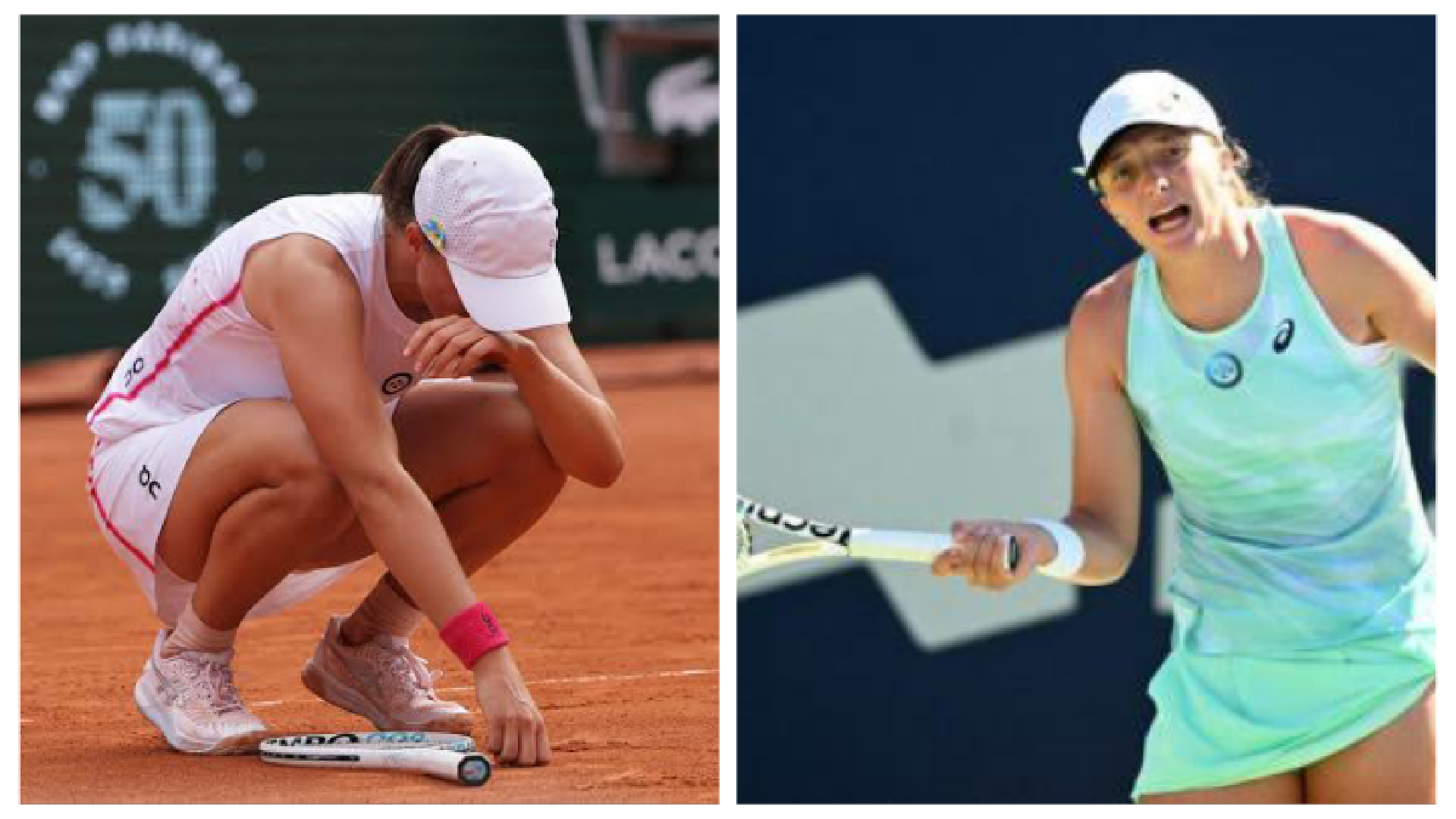“Iga Swiatek Shocks Tennis World with Retirement Announcement After Critical Injury at Australian Open”
Iga Swiatek’s Unforeseen Farewell: Reflecting on a Career Cut Short by Injury at the Australian Open”
In an unexpected turn of events, the tennis world was left in disbelief as Iga Swiatek, the dynamic Polish tennis star, announced her retirement following a critical injury sustained during her last match at the Australian Open. The shocking revelation has sent ripples through the sports community, prompting reflection on the highs and lows of Swiatek’s promising career and the abrupt end that has left fans and fellow athletes in somber contemplation.
Swiatek, who burst onto the international tennis scene with her remarkable victory at the 2020 French Open, capturing the hearts of fans with her skillful play and infectious enthusiasm, had become a beacon of hope for the next generation of tennis talent. Her announcement to step away from the sport has left a void that few anticipated, signaling the end of a journey that held so much promise.
The Australian Open, a tournament known for its thrilling matches and unexpected twists, became the stage for Swiatek’s final act. The critical injury occurred during a fiercely contested match, where Swiatek displayed her trademark determination and resilience. As the news of her retirement spread, the tennis community was left grappling with the sudden departure of one of its brightest stars.
Swiatek’s career was a testament to her undeniable talent and the impact she made in a relatively short span. From her breakthrough at Roland Garros to consistently strong performances on the global stage, Swiatek had become a symbol of the evolving landscape of women’s tennis. Her retirement forces us to reflect not only on what she achieved but also on the potential left unfulfilled.
The injuries that athletes face are an unfortunate and intrinsic part of professional sports. Swiatek’s decision to retire at this juncture raises questions about the toll that the physical demands of tennis can take on even the most promising careers. The mental and emotional resilience required to navigate the challenges of competition is immense, and Swiatek’s retirement sheds light on the fragility of a tennis career, where one moment can alter the trajectory of a player’s life.
As we reflect on Swiatek’s career, it is impossible to ignore the indelible mark she left on the sport. Her playing style, marked by a combination of power and finesse, captured the imagination of fans worldwide. The poise with which she handled the pressures of the Grand Slam stage at such a young age was commendable, earning her respect not just as a player but as a role model for aspiring athletes.
The announcement of retirement is a deeply personal decision for any athlete, and Swiatek’s case is no exception. The toll of injuries, the relentless grind of the tour, and the pursuit of excellence can weigh heavily on a player. As fans, we are left to grapple with the realization that we may have witnessed the premature conclusion of a career that held so much promise and potential for greatness.
The tennis community, known for its camaraderie and support, has rallied around Swiatek in the wake of her announcement. Fellow players, coaches, and fans alike have expressed their gratitude for the joy and inspiration she brought to the sport. However, the collective sentiment remains one of sadness, as the sport bids farewell to a player who had the potential to shape its future.
Swiatek’s retirement prompts us to ponder the unpredictable nature of professional sports. In a discipline where success is measured not just in victories but in the ability to endure and overcome setbacks, injuries become a formidable adversary. Swiatek’s retirement serves as a reminder that the pursuit of excellence in sports is often accompanied by sacrifices, and the fine line between triumph and adversity is ever-present.
Beyond the court, Swiatek’s retirement underscores the importance of prioritizing athlete well-being in the fiercely competitive world of professional tennis. The physical toll of the sport, coupled with the mental and emotional strain, raises questions about the support structures in place for players. As the tennis community reflects on Swiatek’s departure, there is an opportunity to reassess the holistic approach to athlete care and development.

In conclusion, Iga Swiatek’s shocking retirement announcement has left the tennis world in a state of reflection and contemplation. Her journey from a promising young talent to a Grand Slam champion was cut short by a critical injury, forcing us to confront the unpredictable nature of professional sports. As we bid farewell to a player who captivated us with her talent and spirit, there is a collective acknowledgment of the challenges athletes face and the need for a more comprehensive approach to their well-being. Swiatek’s legacy transcends victories and titles; it serves as a poignant reminder of the human aspect of sports and the resilience required to navigate its unpredictable terrain.






